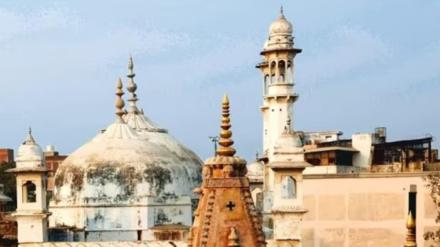The management committee of the Gyanvapi Mosque in Varanasi has approached the Supreme Court, opposing petitions that challenge the constitutional validity of the Places of Worship Act, 1991, warning of “drastic” consequences if the petitions are allowed.
In an intervention application, the committee cited recent violence in Sambhal, Uttar Pradesh, where a court-permitted survey of the Shahi Jama Masjid led to widespread unrest, reportedly claiming six lives. The committee argued that a ruling in favor of the petitioners would provoke similar disputes nationwide, threatening communal harmony and the rule of law.
The committee noted that several claims have been made in recent years asserting that mosques and dargahs were once temples. It contended that such claims are “rhetorical and communal” and argued that grievances regarding past rulers cannot form a valid basis to challenge the law.
SC precedent cited
The application referenced the 2019 Ayodhya verdict, where a five-judge Supreme Court bench held that courts cannot entertain claims stemming from Mughal-era actions. The bench also emphasised the adoption of the Constitution as a transformative moment, affirming the rule of law over historical grievances.
“has left no manner of doubt as to the reasons for the enactment and the provisions being a core component of the principle of non-retrogression and secular values. Thus the judgment…has recognised the principle of non-retrogression as ca ore component of secularism which in itself is the basic structure of the Constitution,” the committee said, as The Indian Express reported.
The Places of Worship Act prohibits the conversion of religious sites as they stood on Aug. 15, 1947. According to the committee, the Act enforces constitutional values, ensures the equality of all religions, and safeguards secularism. The Act’s provisions, the committee said, address not just the state but every citizen, aligning with the fundamental duties outlined in Article 51A of the Constitution.
Concerns over interim surveys
The committee raised concerns over courts allowing interim surveys or Archaeological Survey of India inspections of mosques before legal issues are decided. It warned that such actions risk misinterpreting the law and undermining the Act’s objectives.
By opposing the petitions, the Gyanvapi Mosque committee seeks to reinforce the law’s role in preserving secular values and preventing communal discord.
